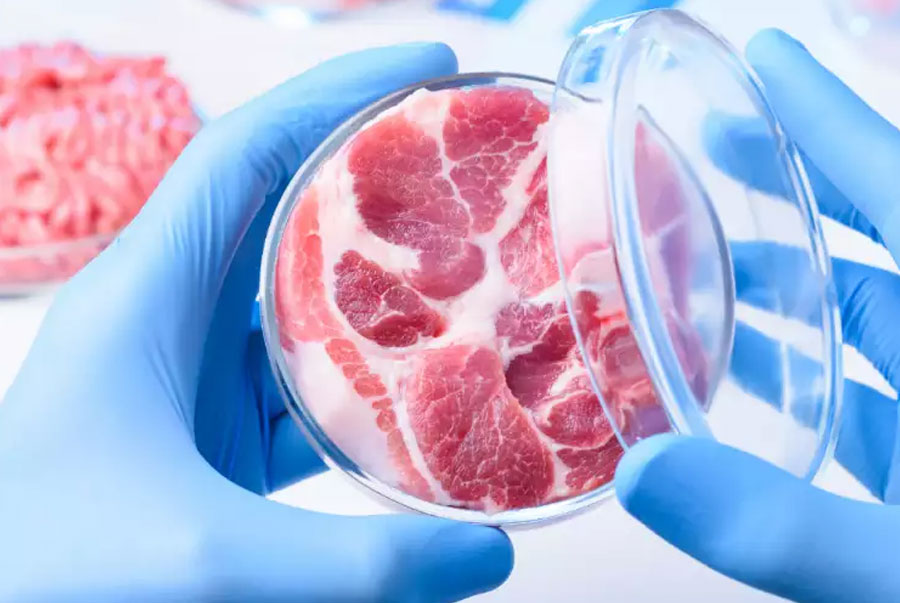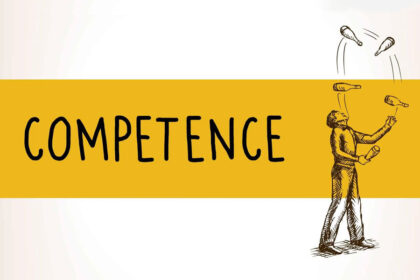Hi readers!
In 2022, I made a presentation at University of Rawlakot where I showed a slide with following text:
Artificial meat!
It looks like meat, feels like meat and it is meat, although it’s never been near a living, breathing animal. Instead, artificial or “cultured” meat is grown from stem cells in giant vats.
Why it is being done?
Modern meat production involves inhumane conditions and mass use of antibiotics and growth hormones with serious public health implications, and high environmental costs, and are already considered questionable.
Artificial meat is environment friendly as it uses far less water, energy and land and have few ethical objections,
The demand for meat would rise by 73% in 2050 and will put more strain on the food system and needs to open up new farmland.
Cattle now occupy nearly ¼ of all cultivable land, and growing crops for animal feed takes up another 25%.
Cultured meat is produced by in vitro cultivation of animal cells (instead of from slaughtered animals) through tissue engineering techniques traditionally used in regenerative medicine,
The first artificial hamburger could be developed next year (2023) but it might not have taste at all because meat needs blood and fat to give it color and taste.
Scientists have successfully identified stem cells for blood and fat through complex and expensive process, but it is improved and is being used while Europe has successfully developed edible tissue grown from stem cells in laboratories which UK, Israel, India and China are already using it.
In 2017, China signed a trade agreement with Israel worth $300 million for importing lab-grown meats because consumers are eager to eat,
In Mar 2019, a perfect imitation of texture and taste of a plant-based meat burger “Impossible” was invented (soy, pea, pulses, beans, nuts, rice protein, and spent grains: byproduct of the brewing industry that makes up 85 percent of brewing waste) are being used for this purpose,
Consumers in China, Mexico, UK, Germany, and the US are eating more meat substitutes now than did previously, and I end the talk saying:
Can we follow the suit?
Why have I said this knowing fully well that nobody would pay heed to this?
The answer is that I know, there are so many biotechnological laboratories in country with hundreds of scientists who have very high claims for tissue culture and cell culture research who could do this very easily if they really want do research and not believer in optics?
No answer to this and no product in market till today. I can only wish If we could learn this from China (our tried and trusted friend) whom we can borrow vision if we have to?
Now have a look around the world
Artificial or laboratory or culture meat was introduced in August 2013 for the first time a cultivated beef patty was introduced in August and was developed by Maastricht University. Currently, there are about 60 start-ups aiming to produce and sell cultivated meat, and not just beef, but also chicken, duck, seafood, foie gras (liver of a goose or duck that has been fattened by a process of force-feeding: a delicacy of French cuisine.), kangaroo, and more, nevertheless, cultured meat is still beset with some concerns like:
Animal welfare: one of main reasons used to initiate research on lab., grown meat through which meat can be produced without the need for raising and slaughtering a large number of animals and therefore, has the potential to increase animal welfare within the food system.
But, process of lab., grown meat is still relying on stem cells obtained from a live animal, and the most widely used culture medium contains fetal bovine serum (FBS), which is collected from fetal blood at animal slaughterhouses, so it is not yet entirely slaughter-free thereby putting the animal welfare at stake.
Food safety is another concern as cultured meat though being grown under controlled lab environment where there is no risk of contamination from (illness-causing) bacteria like E.coli or Campylobacter living in the gut of livestock. However, like any industrial food production, microbiological or chemical contamination can still occur at different stages and need systematic and stringent safety measures before it is sold in the world market.
Yet another concern is sustainable production and availability of protein which is crucial because the world population is expected to grow to 9 billion by 2050 and sustainability is one of motivation behind production of lab., grown meant. It is not clear yet whether mass-scale production of meat in the lab will be more environmentally sustainable than traditional animal husbandry? It is true that some of the resources such as water, land and fertilizers, are needed less compared to what is required to grow feed crops and livestock, other aspects are more complicated. For example:
Reduction of cattle farming would decrease methane emissions that contribute to climate change, recent modelling studies have suggested that lab-based meat production could generate problematic levels of CO2 emissions over the long term,
Producing cultivated meat requires significant energy input, which could pose a problem if fossil fuels are used to power that production. The use of renewable energy, therefore, would be the better option for sustainability issues.
What “Freethink” is saying?
What benefits are there to growing meat from chicken cells rather than raising animals for slaughter? Industrial animal agriculture is responsible for an estimated 15 percent of total global greenhouse gas emissions, and with demand for meat projected to double in the next decade, this technology could offer a more sustainable option for future carnivores.
Come with us as we step inside a lab-grown meat facility and become some of the first to taste-test chicken that was grown in a bioreactor instead of on a factory farm.
For details watch this video at the link below
https://www.freethink.com/series/hard-reset/upside-foods
Dear reader! Freethink is a platform for the people and ideas that are changing our world: a media company that publishes stories about changing world, for people who want to have a hand in changing it, are passionate innovators, and think differently who are solving humanity’s biggest challenges by thinking differently. Please do visit their website as it might help changing opinion(s) spread like a disease in our country. What do you think?
See you next week. Take care,
Bye





